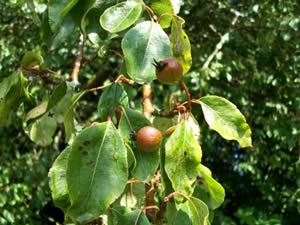 |
|||||||||
|
|||||||||||||||||||
|
|
Rare Wild Plants: the Missing Link in our Food Supplies? A new report Crop Wild Relatives: Plant Conservation for Food Security published today by Natural England shows how the scarce wild relatives of modern crops could hold some of the seeds of success in the fight for global food security.
All of our food crops were originally wild plants whose descendants have for centuries been selectively bred to develop higher yielding crops. In the process a great deal of their original genetic diversity has been lost. In the 20th century, for example, 75% of genetic diversity in crops was lost due to increased use of scientifically bred varieties. The result is that we are now dependent upon a limited genetic range for most of our main food plants, leaving them susceptible to problems such as new pests and diseases and the effects of climate change. Experts agree that to continue adapting resilient new varieties to help feed growing 21st century populations the genes from crop wild relatives will be an essential resource for future plant breeding. The English countryside is surprisingly rich in these ancient ancestors. Sugar beet has its roots in wild species of sea beet, there are several relatives of barley, and wild cabbage and turnip are the ancestors of oil seed rape. England’s wild plants include the wild relatives of cabbage, radish, asparagus, leek and lettuce while many forage or fodder crops have their origins in our wild grasses and clovers. However, many of England’s crop wild relatives are increasingly rare and in urgent need of targeted conservation. Some - such as the least lettuce and wild asparagus - are now classed as endangered species while others are very local in their range. Helen Phillips, Natural England’s Chief Executive, said: “Crop wild relatives are an important genetic resource that will help us adapt modern crop varieties to enable them to withstand the future effects of climate change, pests and diseases. By recognising the potential role that wild plants can play in supporting future agricultural production we can help secure the resilience of our food crops and bring a boost to biodiversity in England.”
|
||||||||||||||||||

|
|
||||||||||||||||||
| home | agri-services | pedigree
pen | news | dairy | beef | machinery BPS | property | organisations | site map |
|||||||||||||||||||


